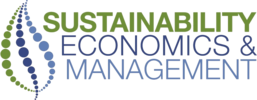Rahmenbedingungen:
Dauer: 1 Semester
Turnus: jährlich, WiSe
Lern-/Lehrform: Vorlesung und Seminar
Lehrsprache: Englisch
ECTS-Kredit-Punkte: 6,00 KP
Workload: 180 Stunden, davon Präsenzzeit 56 Stunden
Modulinhalte:
The introduction to processes and systems of the dynamic Earth constituting the foundation for sustainable
management is given to students to provide them with:
• Knowledge about processes and systems relevant for sustainable management using knowledge and
methodologies from all science disciplines in an integrated way.
• Skills in elaborating on complex tasks of environmental management using an interdisciplinary science based
approach and to present related findings to non-expert audiences.
• Lecture room presentations and discussions based on slides and black/white board usage.
Short films and serious gaming approaches will be used to endorse the intended achievements
The module ´Bioplanet Earth´ covers two parts. One part is a series of lectures on approaches of science disciplines to the structure and physiology of the Earth. The other part is a seminar designed for having a dialogue based on student´s presentations on actual problems in using resources and protecting ecosystems
and climate in a sustainable way.
Lecture: Understanding Bioplanet Earth (2 contact hours/week)
Solar systems and formation of the Earth, Earth´s interior, Earth´s dynamics: rock, water and element cycles, evolution of life on Earth, organisms and biodiversity, climate system, marine and terrestrial systems, fossil and renewable resources plus various insights into ecosystems under different climate conditions and human intervention.
Seminar: Cases in Understanding the Bioplanet Earth (2 contact hours/week)
Introduction to key processes and to systems dynamics of the Earth representing a planet being alive driven by external and internal forces interacting with biological activities. Topics of the lecture comprise introductions to the evolution of the universe and solar systems, the differentiation and sub-systems of the Earth´s interior, minerals and rock cycle, soils, ocean and climate, evolution and biodiversity, organisms and physiology, water and element cycling plus insights into ecosystems under different climate conditions. The cases are selected in order to (i) highlight certain principles and theories in geo- and biosciences and (ii) exemplify critical objects and phenomena in modern practice of resource and environmental management.
Modulverantwortlicher:
Dr. Thomas Klenke
Für weitere Informationen siehe Veranstaltungsverzeichnis.

